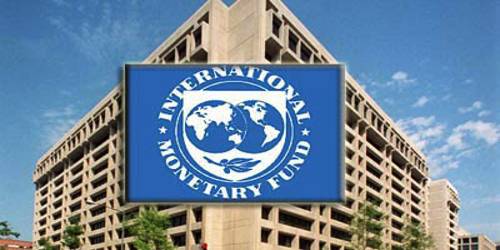
• Says pandemic still in exponential phase
As African countries commence the re-opening of their economies, the International Monetary Fund (IMF) has counselled them to do so cautiously because the pandemic is still in its exponential phase.

This was contained in IMF’s latest Regional Economic Outlook for Sub-Saharan Africa released on Monday.
According to Abebe Aemro Selassie, Director of the IMF’s African Department, “The growth rate of new cases has slowed slightly since April, and a number of countries have cautiously eased some of their containment measures.

“But region-wide, the pandemic is still in its exponential phase—Sub-Saharan Africa has recently exceeded more than a quarter of a million confirmed cases, and new cases are still doubling every 2-3 weeks. Given the region’s already-stretched healthcare capacity, the immediate priority is still to protect lives and to do whatever it takes to strengthen local health systems and contain the outbreak.”
On the outlook for the region, Selassie said African economy would shrink by 3.2 per cent, double the contraction predicted in April.
He said: “This is a fast-moving crisis. And recent developments suggest that the downturn will be significantly larger than we had anticipated only 10 weeks ago. The risks we highlighted in April all continue to be a concern, but the deterioration of the global outlook has been particularly striking.
“In line with this new outlook, and consistent with local high-frequency indicators, output in Sub-Saharan Africa is now projected to shrink by 3.2 per cent this year, more than double the contraction we had outlined in April. Again, this is set to be the worst outcome on record.”
While commenting on the steps taken by governments to mitigate the effects of the pandemic on the economy, IMF said while the monetary policies had been effective, same could not be said of the fiscal policies because of the continent’s heavy debt burden.
“On economic policies, sub-Saharan African countries have acted swiftly and aggressively to support the economy. Monetary and prudential policies have been eased, with countries adopting a mix of reduced policy rates, added injections of liquidity, greater exchange-rate flexibility, and a temporary relaxation of regulatory and prudential norms, depending on country circumstances.
“On the fiscal side, however, country responses have often been more constrained. Even before the crisis, debt levels were elevated for many countries in the region. In this context, and in light of collapsing tax revenues, the ability of governments to increase spending has been limited. To date, countries in the region have announced COVID-related fiscal packages averaging 3 per cent of GDP. This effort has been indispensable. But it has often come at the expense of other priorities, such as public investment, and is markedly less than the response seen in other emerging markets or advanced economies.”
IMF then called on African countries to make preserving lives and reducing poverty a priority.
It added “As the region starts to recover, authorities should gradually shift from broad fiscal support to more affordable, targeted policies; concentrating in particular on the poorest households and those sectors hit hardest by the crisis.
“Looking even further forward, and once the crisis has waned, countries should refocus their attention on transforming their economies, creating jobs, and boosting living standards—clawing back some of the ground lost during the current crisis. As before the crisis, part of this effort will require putting fiscal positions back on a path consistent with debt sustainability; which will, in turn, require a renewed determination to implement revenue-mobilization, debt-management, and public financial management reforms. In addition, sustainable, job-rich, and inclusive growth will require private-sector investment, along with a business environment in which new ideas and projects can flourish, and where new opportunities (such as from the digital revolution) can be developed fully.”
Credit: Tribune
